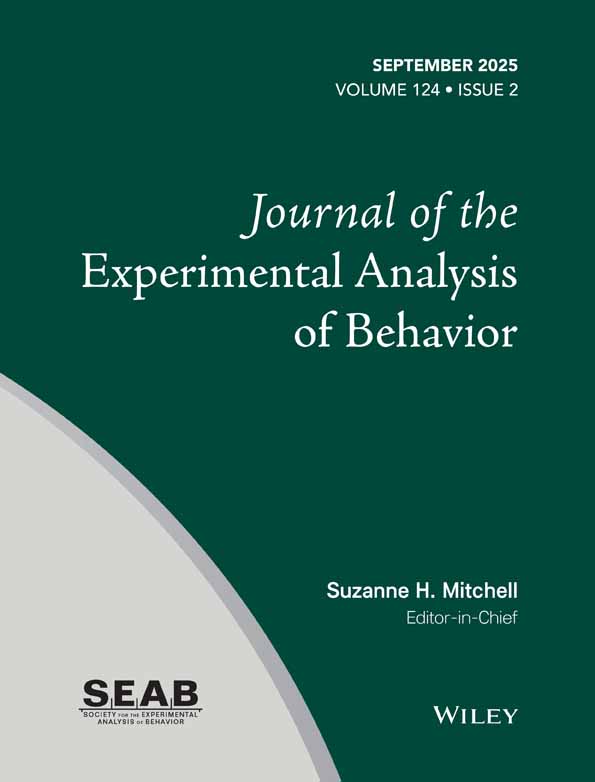OBSERVING BEHAVIOR IN SQUIRREL MONKEYS UNDER A MULTIPLE SCHEDULE OF REINFORCEMENT AVAILABILITY1
Research supported by grants NGR15-002-001 and NGR34-003-041 from the National Aeronautics and Space Administration and by NIMH Research Career Development Award 5-KO2-MH35062 to the second author. Part of these data were presented at the 1970 meetings of the Southeastern Psychological Association.
Abstract
Observing behavior of two squirrel monkeys was examined under a multiple schedule of four components. Lever (observing) responses produced either a stimulus indicating the availability of food or another stimulus indicating food was not available. Key responses in the presence of the food-available stimulus produced food on a continuous reinforcement schedule. In the absence of food-available stimuli, responding on the key had no scheduled consequences. Observing responses produced food-available stimuli according to three different random-interval schedules with mean interstimulus availability times of 1, 2, and 4 min. In the fourth component of the multiple schedule (observing extinction) food-available stimuli never occurred. Each component of the schedule was correlated with a distinctive auditory stimulus. Observing rates decreased with decreasing frequency of the food-available stimulus. Observing rates during extinction continued decreasing when the brief stimulus indicating food unavailability was no longer produced by lever pressing. When the brief stimulus was reinstated response rates increased abruptly.




